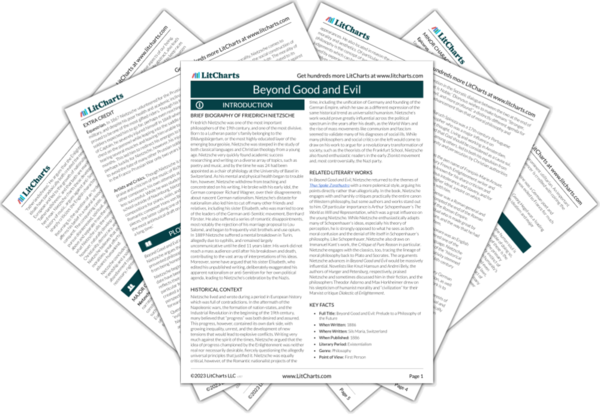Much like his admiration of cynicism earlier, Nietzsche’s praise for suspicion is based not on the value of these characteristics as such, but on the hypocrisy of modern morality, to which they offer a much-needed corrective. The negativity with which common morals respond to these traits, to Nietzsche, indicates that they strike an important nerve. This uncompromising mode of questioning is different, however, from claiming moral righteousness for oneself when criticizing society. Nietzsche believes that philosophers should be both ruthlessly inquisitive toward society and humbled by their own drives, which are often incomprehensible.
